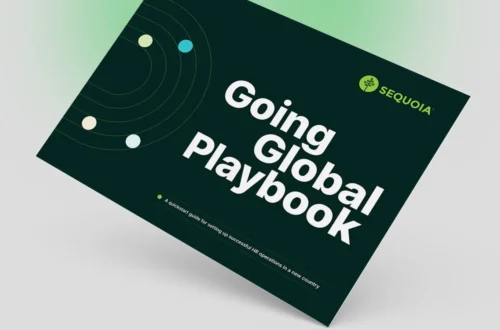Expanding your business into international markets is like setting sail on a grand adventure. The promise of new customers, bigger profits, and global brand recognition is exhilarating, but the journey is fraught with challenges that can sink even the most ambitious ventures. Going it alone—without expert guidance or a well-thought-out strategy—can lead to costly mistakes that haunt your business for years. In this article, we’ll explore the risks of tackling global expansion solo, share real-world insights, and provide actionable strategies to navigate international markets successfully.
Why Global Expansion Is a High-Stakes Game
Venturing into new markets isn’t just about translating your website or shipping products overseas. It’s a complex puzzle involving cultural nuances, legal frameworks, and economic realities. Missteps can lead to financial losses, damaged reputations, and missed opportunities. The stakes are high, and the margin for error is slim.
The Allure of New Markets
The potential rewards of global expansion are undeniable—access to millions of new customers, diversified revenue streams, and a stronger competitive edge. But without a roadmap, the dream of global success can quickly become a nightmare.
My Brush with International Chaos
A few years ago, a friend’s e-commerce startup decided to expand into Brazil without much preparation. They assumed their U.S. success would translate effortlessly. Spoiler: it didn’t. They faced unexpected tax penalties, cultural missteps in their marketing, and a logistics nightmare. The lesson? You can’t wing it in global markets.
Key Risks of Going It Alone
Attempting global expansion without expertise is like trying to navigate a foreign city without a map or GPS. Here are the major risks you face when you go it alone.
Regulatory and Compliance Pitfalls
Every country has its own web of regulations—tax laws, labor rules, data protection requirements. Ignoring these can lead to hefty fines or legal battles. For example, the EU’s GDPR imposes strict rules on data handling, with penalties up to 4% of annual global revenue for non-compliance.
Cultural Missteps That Alienate Customers
Cultural differences can make or break your brand. A marketing campaign that resonates in one country might offend in another. Take the classic case of a U.S. brand using a thumbs-up gesture in ads for a Middle Eastern market—unaware it’s an offensive gesture in some cultures there.
Financial Overreach and Hidden Costs
Global expansion is expensive. From setting up local entities to managing currency fluctuations, costs can spiral quickly. Without proper budgeting, you might find yourself bleeding cash before you even make a sale.
Operational Overload
Expanding internationally demands time, teamwork, and resources. A small team trying to handle everything—from logistics to local hiring—can burn out fast. I’ve seen startups stretch their staff so thin that their domestic operations suffered too.
The Costs of Getting It Wrong
Mistakes in global expansion aren’t just inconvenient—they’re costly. Let’s break down the potential fallout.
Financial Penalties and Losses
- Tax Fines: Failing to comply with local tax laws can lead to penalties, like the $1.2 million fine a U.S. retailer faced in Germany for improper VAT filings.
- Legal Fees: Navigating lawsuits or regulatory disputes can drain budgets.
- Wasted Investments: A failed market entry means sunk costs in marketing, inventory, and infrastructure.
Reputational Damage
A botched expansion can tarnish your brand. Imagine launching a product in Japan with poorly translated packaging—customers will question your professionalism and hesitate to trust you again.
Missed Opportunities
Every dollar and hour spent fixing mistakes is time and money not invested in growth. Competitors who get it right will snatch market share while you’re untangling your mess.
Why Expertise Matters
Navigating international markets requires more than enthusiasm—it demands specialized knowledge. Here’s why partnering with experts is a game-changer.
Understanding Local Regulations
Experts know the ins and outs of local laws, from employment regulations to import duties. They can help you avoid pitfalls like the UK’s complex sponsorship license requirements for work permits.
Cultural Adaptation Done Right
Local experts can guide you in tailoring your brand to fit cultural norms. For instance, a fast-food chain entering India might need to offer vegetarian options to appeal to local preferences.
Streamlined Operations
Professionals can handle logistics, payroll, and compliance, freeing your team to focus on core business goals. They know where to “tap the hammer” to keep things running smoothly.
Comparing Solo Expansion vs. Expert-Led Expansion
| Aspect | Going It Alone | Expert-Led Expansion |
|---|---|---|
| Regulatory Compliance | High risk of errors and fines | Guided by local experts, minimizing risks |
| Cultural Fit | Likely missteps due to lack of local insight | Tailored strategies for cultural alignment |
| Cost Efficiency | Hidden costs and budget overruns | Optimized budgeting and resource allocation |
| Speed to Market | Slow due to trial-and-error | Faster with established processes |
| Scalability | Limited by internal bandwidth | Scalable with expert networks and systems |
Pros and Cons of Going It Alone
Pros:
- Full control over decisions.
- Potentially lower initial costs (no consultant fees).
- Learning experience for your team.
Cons:
- High risk of costly mistakes.
- Time-consuming research and execution.
- Limited scalability without local knowledge.
Pros and Cons of Expert-Led Expansion
Pros:
- Reduced risk of regulatory and cultural errors.
- Faster market entry with proven strategies.
- Access to local networks and expertise.
Cons:
- Higher upfront costs for professional services.
- Dependency on external partners.
Strategies for Successful Global Expansion
To avoid the risks of going it alone, here are actionable strategies to ensure your expansion is a success.
Conduct Thorough Market Research
Before entering a new market, analyze demand, competition, and cultural nuances. Tools like Google Analytics and SEMrush can help you identify high-potential keywords and traffic sources.
Partner with Local Experts
Work with local consultants or agencies who understand the market. They can guide you through legal requirements, cultural adaptation, and operational setup. Check out platforms like Gartner Digital Markets for vetted partners.
Invest in Localization
Localization goes beyond translation—it’s about adapting your brand to local tastes. For example, a clothing brand might need to adjust sizing charts for Asian markets where body types differ.
Build a Scalable SEO Strategy
A robust global SEO strategy is critical for visibility. Use hreflang tags, localize content, and build backlinks from local websites to boost your rankings.
Monitor and Adapt
Global markets are dynamic. Use tools like Google Search Console to track performance and adjust your strategy based on real-time data.
Best Tools for Global Expansion
Here’s a rundown of tools to support your international journey:
- SEMrush: For keyword research and competitor analysis.
- Google Analytics: To track traffic and conversions by region.
- Ahrefs: For building local backlinks and monitoring SEO performance.
- Smartling: For professional localization and translation services.
- RocketReach: To connect with local influencers and media outlets.
People Also Ask (PAA)
What are the risks of international expansion?
Risks include regulatory non-compliance, cultural missteps, financial losses, and operational overload. These can lead to fines, reputational damage, and missed opportunities.
How can businesses mitigate risks in global expansion?
Mitigate risks by conducting thorough market research, partnering with local experts, investing in localization, and using data-driven SEO strategies.
Why is localization important for global markets?
Localization ensures your brand resonates with local audiences by adapting to their language, culture, and preferences, boosting engagement and trust.
Where can I find experts for global expansion?
Look for reputable consultants on platforms like Gartner Digital Markets or local agencies with proven track records in your target market.
FAQ Section
Q: What is the biggest mistake companies make in global expansion?
A: The biggest mistake is underestimating the complexity of international markets. Companies often assume their domestic strategies will work abroad, leading to cultural and regulatory blunders.
Q: How long does it take to see ROI from global expansion?
A: ROI varies by market but typically takes 12-18 months with a well-executed strategy. Factors like localization and SEO performance influence timelines.
Q: What’s the best way to start global expansion?
A: Start with thorough market research to identify high-potential regions. Partner with local experts and prioritize one or two markets before scaling further.
Q: How do cultural differences impact global expansion?
A: Cultural differences affect everything from marketing to product offerings. Missteps, like inappropriate advertising, can alienate customers and harm your brand.
Q: Are there affordable tools for small businesses expanding globally?
A: Yes, tools like Google Analytics (free), SEMrush (affordable plans), and Smartling offer cost-effective solutions for market research, SEO, and localization.
Final Thoughts
Global expansion is a thrilling opportunity, but it’s not for the faint-hearted. Going it alone might seem tempting to save costs, but the risks—financial, reputational, and operational—are too steep to ignore. By investing in market research, partnering with experts, and crafting a localized, data-driven strategy, you can turn your global ambitions into reality. Think of it like hiring a seasoned guide for a mountain climb—sure, you could try it alone, but why risk the fall when success is within reach? Ready to take the leap? Start with a single market, learn the ropes, and let your global journey begin.





